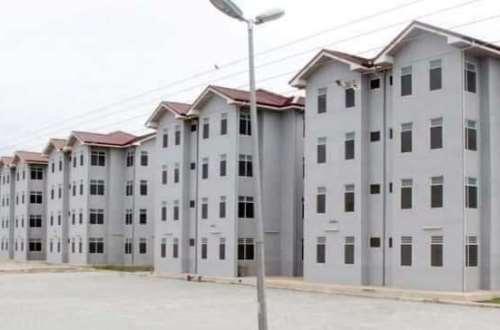Just last year, the ordinary Ghanaian in Sekondi-Takoradi could rent a simple one-bedroom apartment with a shared toilet facility as low as GH¢60; but now prices have moved to as high as GH¢100, compounding the high cost of living situation for tenants.
Currently, the rent cost of a one-bedroom self-contained is between GH¢250 to GH¢350 at Beach Road, Airport Ridge, Anaji and Newsite. However, the same facility was last year priced between GH¢200 and GH¢300.
Again, a two-bedroom and hall with toilet facility, a kitchen and a storeroom that was between GH¢450 and GH¢600 is at present priced between GH¢500 and GH¢700 depending on the area.
And also, a three-bedroom and hall with each room fitted with toilet facility that was between GH¢800 and GH¢850 is currently between GH¢900 and GH¢1,200.
This development, most tenants say, has added to their anxiety as the cost of living is becoming unbearable, given that the general prices of goods and services is on the ascendency – with inflation currently at 31.7 percent, and water and electricity bills seeing a 22 percent and 27 percent rise respectively beginning next month.
What’s more, income levels have remained the same, or even shrunk, given the current inflation rate which has washed whatever increment, if any, that people may have gained on their salaries.
Besides the general increment, some tenants lament the lack of fair pricing systems for rent, as it has been left to the will and discretion of landlords to decide by how much they want to increase it. And to compound this, some take as much as 12- or 24-month month advance payments – when in reality the law allows a maximum of six months.
One tenant, Joseph Kumah, said another disturbing trend is how some property owners price their homes based on the prospective tenant’s occupation.
“Some ask you about the kind of job you do, and when per their own judgement they think the job is lucrative, they tell you how much you should pay,” he said.
On the part of landlords, one of those interviewed by the B&FT, Mallam Adamu, justified increments by reason of rising cost of living; saying there has been increments in building materials cost, leading to high cost of maintenance of properties – hence,the increment in rent.
For Fred Amoateng, a landlord at Anaji, Takoradi, high-demand has also contributed to the factors as property owners are ready to cash-in.
“The demand for accommodation in this area is very high because there are good roads and free-flow of water within the community. Any amount that you mention, they are willing to pay; and the agent also takes their percentage from it,” he said.
What Rent Control says
Speaking to the Western Regional Manager of Rent Control, Philip Skido Deh, he reiterated the position of the law, saying the Rent Act states that: “No landlord should demand rent advance from a tenant for more than six months”.
According to him, a landlord can increase rent only after two years – further adding that all maintenance work on the building such as painting or renovations should be done before rent is increased.
Tenants are imploring government to see to application of the law, as this will go a long way to ease the burden on citizens in these difficult times.










